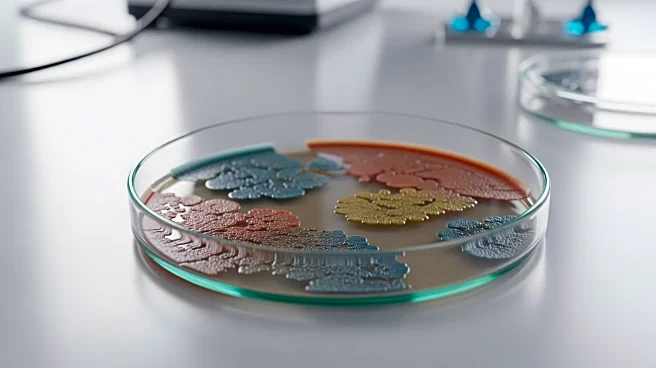Rapid Read • 9 min read
The agriculture of cotton is undergoing significant transformation as NGOs lead initiatives to integrate advanced machinery and sustainable practices by 2025. Cotton farming, a crucial component of the textile industry, is increasingly adopting modern technology to enhance productivity and environmental health. NGOs have introduced over 25 innovative solutions aimed at improving yields and reducing ecological impacts. These include automated planters, precision irrigation systems, mechanical cotton pickers, drones, and AI-enabled machines. Such advancements are crucial in addressing challenges posed by climate variability, soil health issues, and pest activity. Major cotton-producing countries like India, China, the United States, and Brazil are at the forefront of this technological shift, with NGOs playing a pivotal role in facilitating access to these modern machines through field demonstrations, subsidies, and training programs.
AD
The integration of advanced machinery in cotton farming is vital for enhancing productivity, maintaining fiber quality, and reducing labor dependency. This shift is particularly important in regions facing escalating wage pressures and environmental challenges. By adopting precision agriculture techniques, farmers can optimize resource use, minimize environmental impact, and improve sustainability. NGOs are crucial in bridging the technology gap for smallholders, ensuring equitable access to modern solutions. This transformation not only supports higher yields but also promotes environmental stewardship, aligning with global sustainability goals. The involvement of NGOs in promoting sustainable practices and facilitating technology adoption is essential for building resilience in rural communities and securing the future of the global cotton sector.
As cotton farming continues to evolve, the focus will be on further integrating climate-smart agriculture solutions and expanding the use of digital advisory services. NGOs are expected to continue their advocacy for better subsidies, water rights, and insurance for cotton farmers. The adoption of regenerative agriculture practices, such as crop rotation and conservation tillage, will be emphasized to restore soil health and improve farm profitability. The ongoing development of satellite-driven insights and digital monitoring tools will aid farmers in adapting to climate variability and optimizing planting and harvesting schedules. These advancements will play a critical role in ensuring the sustainability and resilience of cotton farming communities.
The deeper implications of this development include the potential for NGOs to drive a broader shift towards regenerative and climate-smart agriculture across various sectors. By promoting transparency and traceability through satellite data, NGOs can enhance consumer trust and ensure fiber authenticity. The adoption of blockchain-backed supply chain data can further boost transparency and accountability in the cotton industry. Additionally, the focus on carbon footprinting and measurement methodologies can align rural communities with global carbon standards, contributing to broader environmental goals. The collaboration between NGOs, technological organizations, and farmers is set to transform the agricultural landscape, fostering a more equitable and sustainable future.
AD
More Stories You Might Enjoy













